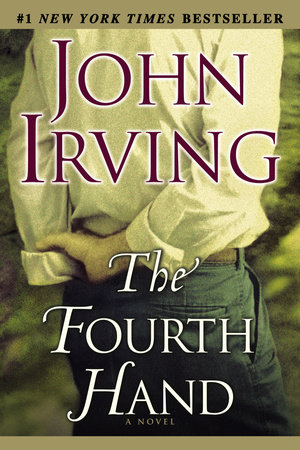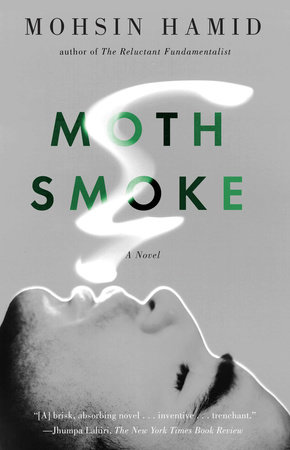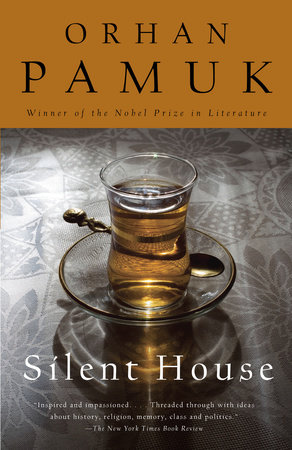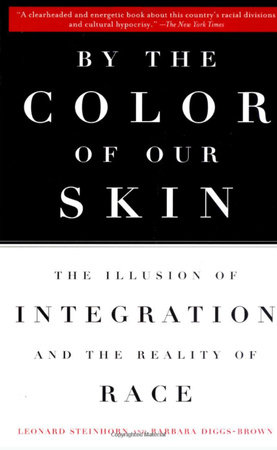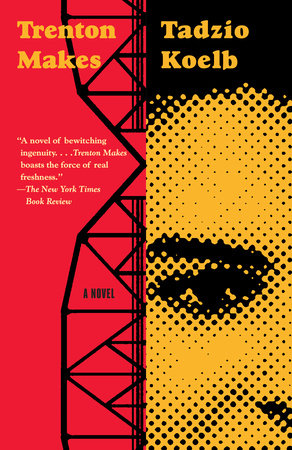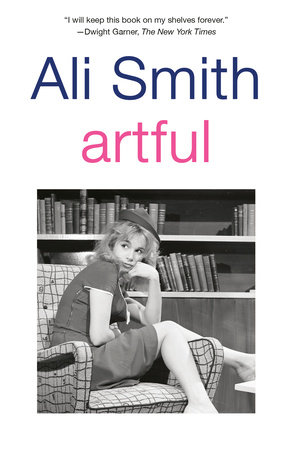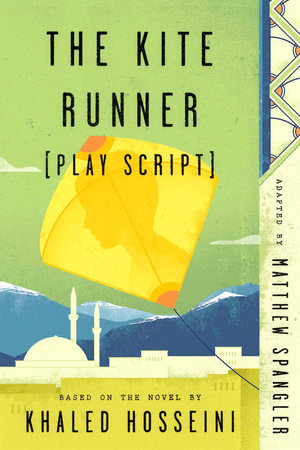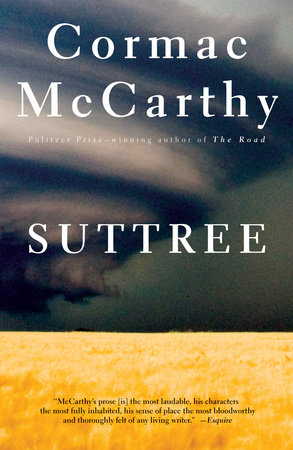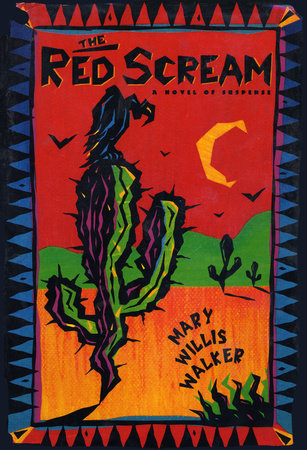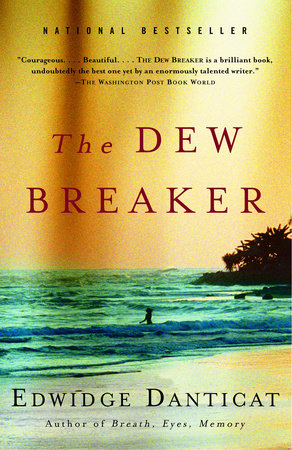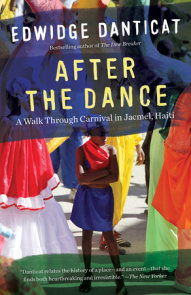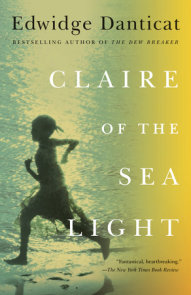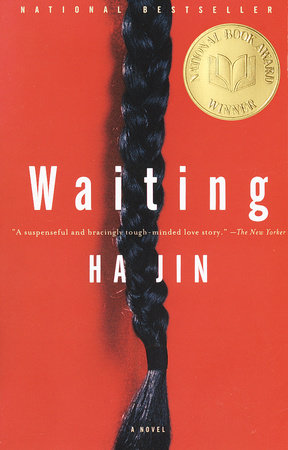Author Q&A
A Conversation with Edwidge DanticatQ: Can you tell us about the title of your new book The Dew Breaker?A: The title is my English translation of a Creole expression “choukèt laroze,” which during the twenty-nine year period (1957-1986) that Haiti was ruled by the father and son dictators, François “Papa Doc” and Jean Claude “Baby Doc” Duvalier, referred to a rural chief, a brutal regional leader and sometime torturer. I have always been fascinated by the poetic naming of such a despicable authority figure and when I started writing about a former torturer, I decided to translate the expression in the most serene sounding way I could. And so we have the dew breaker. I could have chosen several other ways to translate this, the dew shaker, the dew stomper, for example, but I like the way the words dew breaker echo the American expression ball breaker, which is a more fitting label for these kinds of people.Q: Why did you decide to structure the telling of the book in the way that you do? Do you feel that this book represents a departure from your previous works? If so how?A: I wanted the book to open up, as you read it, that is, with each new character, each new situation, I wanted to add layers upon layers to the central figure, the dew breaker. I wanted the reader to be introduced to the dew breaker from different angles, and for those who love him, and even for him, to see himself from various perspectives. This book is a departure for me in that I am writing mostly about men. And I am writing about different time periods in a non-linear way. Q: What kind of research, if any, went into the writing of the book?A: I read a lot about the twenty-nine year period of the dictatorship, even though I have merged certain years and have moved certain events to fit the period the book covers. I read a lot of personal narratives, academic texts, old news accounts, spoke to a lot of people and asked them to share their memories of growing up during the Duvaliers’ dictatorship. I was born in 1969, and spent the first twelve years of my life under the dictatorships so I also used my own memories. For example, there is an incident in the book where a minister is arrested by Papa Doc’s henchmen. This really happened when I was growing up. The minister was severely beaten as he was leaving his church one night and was nearly killed, so I use my memories of that time. The real life minister also had a radio program on Radio Lumière, the religious station mentioned in the book, even though he never used the words my fictional minister uses in his radio and live sermons.Q: Would you say that most of your characters attempt in some way to reinvent themselves or escape their past? How successful are they?A: Like all new immigrants, many of the characters have no choice but to reinvent themselves in some way or other. Otherwise they would not survive their new lives in America. They try to forget what haunts them and use what is useful to them from their past, but ultimately, most of them find balancing these two realities quite difficult. And like all immigrants, some of them succeed and some of them fail.Q: To what extent are you trying to inform people about Haitian politics and people in your writing? What response do you expect to The Dew Breaker in the Haitian-American community?A: It’s hard to say how anyone will react to a book. You never know until they read it, and if they choose to share their impressions with you, react to it. There is not one Haitian-American community, but several communities. I am really not sure how these communities will react. I hope, as I do for all my books, that it will cause some reflection and healthy debate, especially as Haiti celebrates two hundred years of independence in 2004, but still finds itself mired in poverty and political quagmires. I hope with everything I write that it will make people think of Haiti as a very complex place. My greatest wish is that after reading my book, my readers will go out and find many more books to read about Haiti.Q: You have spent most of your life in America. What is it like for you to write of Haiti, a place which, though an integral part of your life, is no longer your home? Do your memories of Haiti inform your writing?A: My memories inform my writing a great deal, but since Haiti is a lively place, a place that is changing all the time, I can’t afford to just use my memories. I do a lot of research. I go to Haiti a lot, since I still have family there. I observe. I listen. I blend the Haiti I see today with the Haiti I once lived in and try to create interesting and complex situations for my characters who are facing the current reality as well as the past. Though I don’t live in Haiti, I feel very connected to it. It’s as much a part of me as the United States, as much home for me–if in a more spiritual way–as where I live now in Miami. Q: At one point in the book, an aspiring journalist, Aline, thinks that she “had never imagined that people like Beatrice (a bridal seamstress she is interviewing in Queens) existed, men and women whose tremendous agonies filled every blank space in their lives.” Aline realizes that these are the people she wanted to write about. Is the way Aline thinks of these men and women in this passage similar to how you conjure the characters you write about?A: Yes and no. I am indeed very much drawn to people who live in between determined categories, people who are something between model immigrants and so called deviant ones like Claude, a young man who is deported from the United States for committing a horrible crime. I think all of us live nuanced and complicated lives. I am not interested in writing about people who can be defined too easily, who are either too good or too bad. I like to write about those gray places, those “blank” spaces, if you will, the stuff in-between.Q: “People here (in America) are more practical maybe,” a first-generation American character states “but there, in Haiti or the Philippines, that’s where people see everything, even things they’re not supposed to see. So I see a woman’s face in a rose, I’d think somebody drew it there, but if you see it, Manman, you think it’s a miracle.” Do you think of this American ”practicality” as a positive force? What would you say are some of its repercussions, if any? And on the other hand, do you think that poorer countries of the world may pay a price for holding on to tradition, or to their spiritual beliefs?A: In this scene, the dew breaker and his wife and daughter are on their way to church. The mother likes to talk about miracles so she mentions this one miracle she’s just read about a Filipino man who had seen the Madonna’s face on a rose petal. Her daughter replies by trying to find a proper, an “American” explanation for this miracle–for instance maybe someone drew the Madonna’s face on the rose petal. In an early draft, I had the mother reply that on American money it says “In God We Trust” to show that Americans have their traditions and firm beliefs too. The American Dream in itself is a kind of miracle story, isn’t it? I think when you talk about people from poorer countries, you have to realize that not all people from poorer countries have the same beliefs. There are people from Haiti or the Philippines, for example, who would reply the same way as this first generation American woman. So the dichotomies are not always so clear cut. We all have our traditions, which have both positive and negative repercussions. It all depends on how we integrate them in our lives and whether they serve us or hold us back. But I don’t believe there’s anything wrong with having faith, as long as it does not become a crutch. On some level the preacher in the book is being punished for preaching liberation theology, because he’s basically saying that tradition and faith can be used to oppress a nation. In the most evil hands, traditions can be used like a weapon against a people. In some other instance it’s the very thing that liberates them.Q: Some of the Haitian characters in your book are portrayed as trying to create a tiny version of their home country in America, never quite stepping wholly outside that world. How do you think this affects their experiences as immigrants?A: I think we’re all a little cautious when we move to a new place. We all retreat to familiar versions of our old lives and try to recreate that in the new place. Many of the characters eventually move into their new society, but for some of them it takes much longer than others. Having just left a dictatorship, most of the characters are fearful as they try to navigate a new situation they barely understand. They seek comfort in each other. Sometimes one has to do that to survive. If you don’t speak the language, naturally you’re going to try to find other people like you, people who might be able to help you go to the doctor, get a job. So sometimes that first period of insularity is not a choice, but a necessity.Q: Anne, the wife of the “Dew Breaker” is able to remain married to a man she knows to have committed unspeakable acts, while a village embraces a man who has killed one of their own. What does this say about the nature of love and forgiveness?A: This is the part of the book I wrestled with the most. How do we love people who have done such horrible things? When I was younger, I was always confused that the dictators’ foot soldiers, who were so brutal with other people had wives and children, whom I assumed they loved. This is something I could never clearly explain to myself. I am not saying that everyone should be forgiven and loved after having done such terrible things. I think people like this should be punished as severely as justice allows. But we have those cases where the mothers of murdered children befriend the killers. Where former victims in South Africa embrace their torturers. I can’t explain that, but I think somehow people can and do reach deep inside themselves to make that happen, so that they can move on with their own lives. But for people whose fathers and mothers committed these crimes, I will often hear them say, “That is not the same person I knew. That is not my mother, my father, my brother, my sister.” Perhaps there is a part of that person that the loved one will always hate, but there is also a part of them that they’re somehow able to love, the part who tucked them in at night and walked them to school in the morning. I think it’s an incredible act of love, to love someone whom you know, on some level, is not at all worthy of anyone’s love.Q: What’s next for you?A: I hope to start another novel soon. I just finished a young adult book called Anacaona, Golden Flower. It’s about a Taino queen named Anacaona. She ruled over a part of Haiti, Léogâne, where my family is from. She was a warrior, a dancer, a storyteller, and a fantastic potter and has been my (s)hero since I was a little girl.



